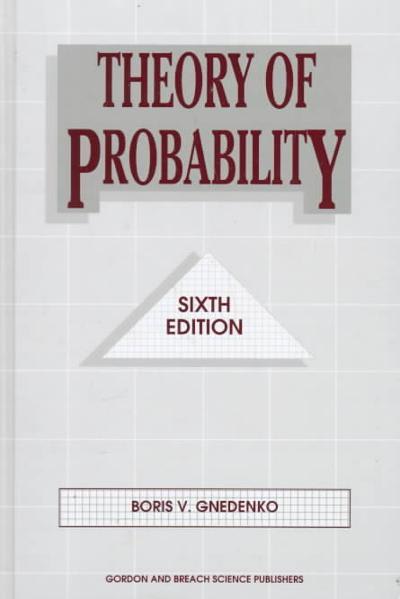Prove that, given the conditions of the preceding problem, (D mu) reaches a maximum for the given
Question:
Prove that, given the conditions of the preceding problem, \(D \mu\) reaches a maximum for the given value of \(a=\frac{1}{n} \sum_{1}^{n} p_{i}\) provided
\[ p_{1}=p_{2}=\ldots=p_{n}=a \]
Preceding Problem:
The probability that event \(A\) will occur in the \(i\) th trial is \(p_{i}\). Let \(\mu\) be the number of occurrences of \(A\) in the first \(n\) independent trials. Find
(a) \(M \mu\),
(b) \(\mathbf{D}_{\mu}\),
(c) \(M\left(\mu-\sum_{1}^{n} p_{i}\right)^{3}\) and
(d) \(M\left(\mu-\sum_{1}^{n} p_{i}\right)^{4}\)
Fantastic news! We've Found the answer you've been seeking!
Step by Step Answer:
Related Book For 

Question Posted:





